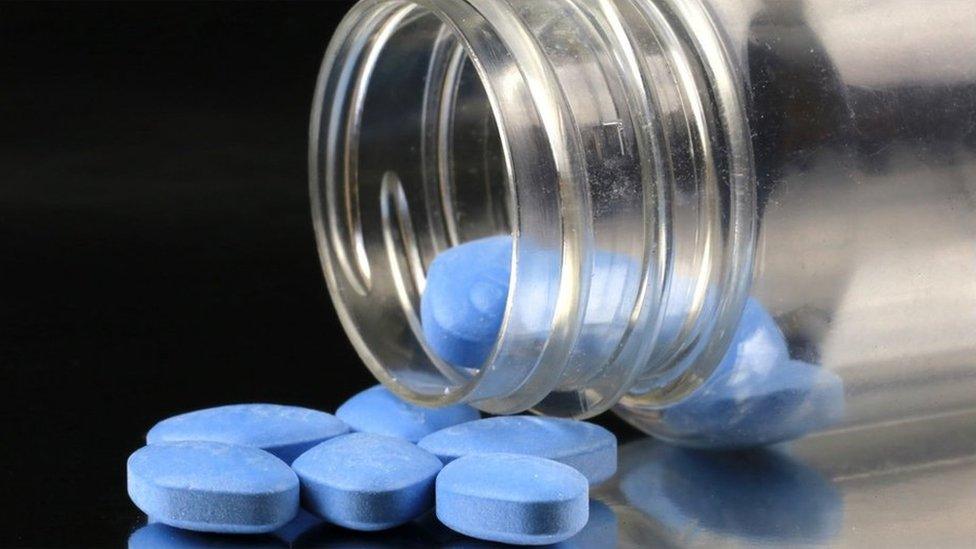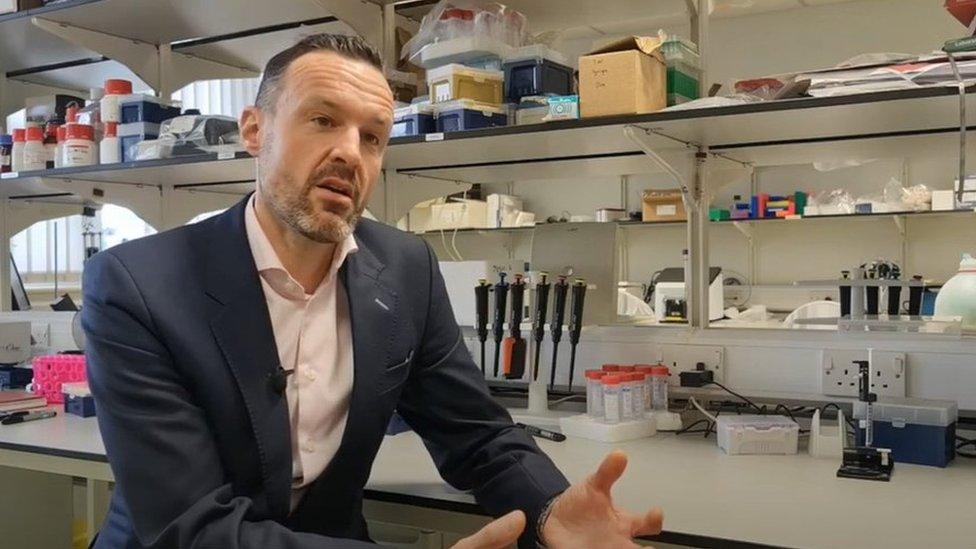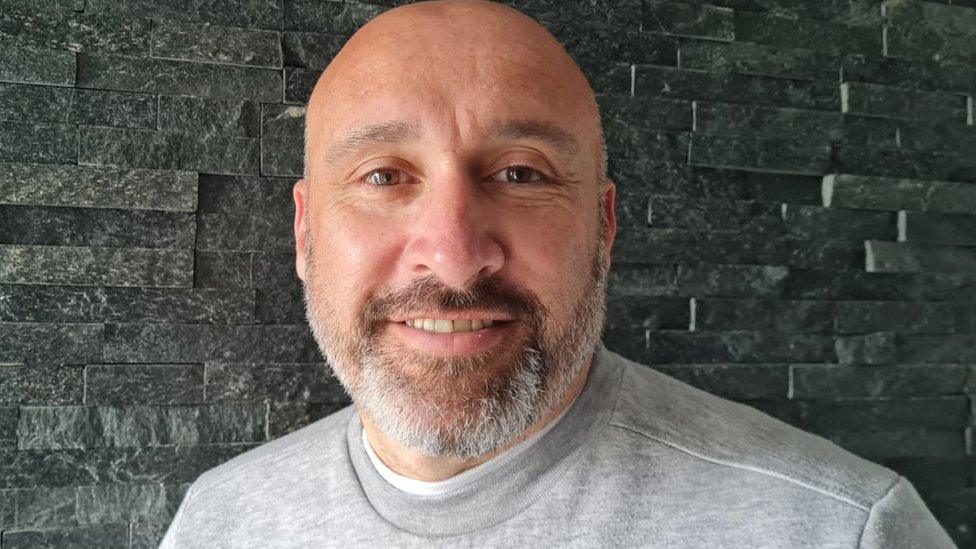Erectile dysfunction drugs could help treat oesophageal cancer, study finds
- Published

Southampton scientists found that the PDE5 inhibitors in Viagra and other erectile dysfunction pills could treat oesophageal cancer
An ingredient in erectile dysfunction medication may help treat oesophageal cancer, a study has found.
Southampton researchers found the PDE5 inhibitors in the medication helped penetrate the barrier of cells around tumours, enabling chemotherapy drugs to reach cancer cells.
One in 10 patients currently survives the disease, which is found anywhere in the gullet, for ten years or more.
The study was funded by Cancer Research UK. The next stage is a clinical trial.
Prof Tim Underwood, lead author of the study, said the discovery could improve these survival rates.
He said a cell known as the cancer-associated fibroblast, responsible for wound healing, could be targeted with the inhibitors.
"It's been used throughout the world in millions of doses," he explained. "It's safe, and we applied it to cancer."
He added it was to the researchers "amazement and surprise and delight" that the drug had an effect.
"We need to put this into a clinical trial where we try the drug type alongside chemotherapy to see if it makes the chemotherapy more effective," he said.
"The preliminary work suggests it should do, and if it does and if it's safe, and it improves outcomes of chemotherapy, then it could be really significant for the patients I look after."
The study was carried out using tumours from eight cancer patients, with further tests done on mice.

Prof Tim Underwood said the drug could "help a large number of people every year to respond better and live longer"
Chemotherapy only helps 20% of oesophageal cancer patients in a significant way, he said.
"If this drug combination even improves it by a small amount, we're really going to help a large number of people every year to respond better and live longer."
Researchers at Southampton University Hospitals say that the usual results of erectile disorder drugs require additional stimulation, so would not impact cancer patients in the same way.
Prof Underwood said the main side effects would be "a bit of headache, a bit of flushing".
Terry Daly, from Aldershot, Hampshire, is one of the 9,500 people diagnosed with oesophageal cancer in the UK every year.
It often goes unnoticed in the early stages, with Mr Daly finding it was hard to swallow his food and he ended up regurgitating it.
He is shortly to undergo another round of chemotherapy, and said if he had the option to take the new treatment he would have "taken it with both hands".
"The research that is being done is absolutely fantastic," he said.
"It is just incredible that there are people out there willing to spend their lives just trying to find a cure, so that people can get on with their everyday lives and not have to go through all this stuff.
"You can't thank these people enough for what they're doing."
The five-year study has been funded by Cancer Research UK and the Medical Research Council.
A clinical trial is expected within the next 18 months and if successful, it is hoped new treatments based on this research could be used within 10 years.

Follow BBC South on Facebook, external, Twitter, external, or Instagram, external. Send your story ideas to south.newsonline@bbc.co.uk, external.
Related topics
- Published31 May 2022

- Published20 June 2022
